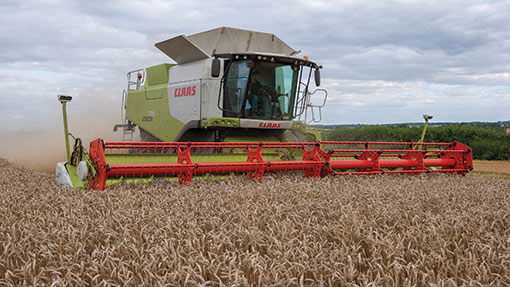Cereals 2014: Big breakfast cereal makers look for UK wheat

Breakfast cereal manufacturers, such as Kellogg’s, Weetabix and Nestlé, were united in their support for UK wheat at this year’s Cereals event.
But very different approaches to grain purchasing were evident, despite the companies having similar provenance and food safety targets and a desire to meet consumer demand for British food.
While Kellogg’s is extending its Origins Programme to source wheat direct from UK farms, the company has no plans to pay any additional premium for soft Group 3 and 4 varieties or place any restrictions on how the crops can be grown.
See also: Growers must focus on food quality
Instead, Kellogg’s provides funding to two dedicated grower groups, so that members can use the financial resources to identify areas for improvement and develop their farming skills, for the benefit of the whole farm business.
The idea is based on the same principles as an Origins Programme for sourcing rice in Spain, which now has more than 1,000 farmer members, notes Richard Burkinshaw of Kellogg’s.
“It’s a long-term commitment to help farmers develop solutions for their growing challenges, through a partnership approach involving training, showcase farms and best practice,” he said.
Partners in the scheme include millers Bowmans and Heygates, Openfield, Niab, the Game and Wildlife Conservation Trust and Rothamsted Research, so that technical expertise is available to participants.
“It’s a different model and it is early days. “It won’t suit everyone. But it should bring benefits across the whole rotation and raise crop yields and quality, while also addressing environmental and crop safety concerns,” said Mr Burkinshaw
In contrast, Weetabix sources just over 100,000t of wheat from a very tight geographical area – within 50 miles of its Northamptonshire factory – and insists on certain agronomic, environmental and rotational practices.
However, the company does pay an additional premium of about £3/t for Group 3 and Group 4 wheats and has never lost a member of its grower group, which now has more than 200 farmers.
The Weetabix protocol has changed since it was introduced in 2010, admitted Keith Turnbull, the company’s head of quality, who revealed that it now includes as many Group 3 and 4 varieties as possible.
“We still have a tight specification in terms of specific weight and screenings, but have relaxed our variety requirements, having done extensive testing on both hard and soft types,” he said.
Lower levels of mycotoxins than the legal standards are required for breakfast cereals.
“So all of the wheat has to go through a very rigorous testing regime and no maize crops can be grown in the rotation for the previous three years,” he said,.
Members also have to be in ELS and are prohibited from using nitrogen after GS47, while all the wheat has to be delivered direct from the farm and not go through central storage.
That couldn’t be more different than Nestle, who source its wheat in England through an agreement with farming co-operative Camgrain, rather than direct from the farm.

